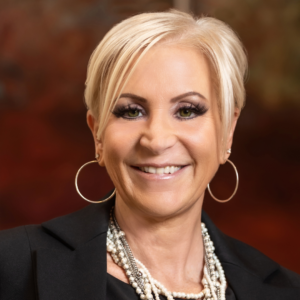5 ways to evaluate your competition
At Argentum’s 2017 Senior Living Executive Conference, one of the panel participants was asked about how senior living providers can analyze the competition. As part of his answer, the speaker openly mentioned the tactic of conducting secret shops on competitors, along with several other tactics. The one thing that was left unsaid: To be better at growing referrals, closing more referrals into admissions and growing revenue, you have to know your competition’s strengths and weaknesses so you can defeat them.
These five primary tactics can help you fully evaluate your competition: Secret shops, open shops, employee feedback, feedback from residents and families and interviews with referral sources. To get a complete picture of your competitor’s strengths and weaknesses you should evaluate your competitors through many different eyes, including employees who have worked there, residents and families who evaluated the competitors during their decision-making process, secret shoppers and professionals who refer patients or clients to you and your competitors.
1. Secret shops: My first word of advice is to have someone other than you or your key staff conduct a secret shop. Save yourself the embarrassment of getting caught—I have seen it happen. Create a specific prospective resident profile that the secret shopper presents to your competitor. I believe strongly that the evaluation should include your competitor’s sales acumen along with the product, services, cleanliness, price/costs and other factors specific to the product. The secret shopper’s specific need profile will appear believable to the competitor and enable the evaluation to be more detailed.
During a secret shop, look for veiled or direct negative references about your facility or community. These tactics to downgrade a prospective client’s opinion or view of your facility are particularly important for you to counter. For example, one of my client’s competitors discusses directly with prospective residents their large multi-community size versus my client’s size as a single facility, raising the spectre of financial instability.
2. Open shops: Openly request a tour of your competitors so you can evaluate their strengths and weaknesses with your understanding of the industry and knowledge of your own facility’s strengths and weaknesses. Be sure to observe closely any differences between their presentation to the secret shopper and their presentation to you as an industry peer.
3. Employees: You probably have numerous employees who have worked for your competitors or who work in both places. They have insider information that could be of use to you, especially in the areas of culture, staffing, clinical programs/services and treatment of residents.
4. Residents and families: Existing residents and their families may have toured your competitors as part of their search for services or were residents of your competitor previously and as such they have significant insider information.
If residents transfer to your site from a competitor, they were probable dissatisfied with their services. This is a unique opportunity to learn significant competitive intelligence that they will be happy to divulge, if you ask the right questions. I coach sales teams to ask questions about the size of their accommodations, price, quality of care, customer service, and satisfactions/dissatisfactions.
5. Referral sources: Existing referral sources have opinions about you and your competitors. Part of your understanding of the needs of your referral sources is to understand what THEY understand about your competitor’s strengths and weaknesses.
I coach sales teams to ask the competition question: “What do our competitors do well and what would you change about them if you could?” I also suggest asking referral sources to evaluate your facility and services honestly, including details on what you do well and where you need to improve.
An example: During a recent assessment of a client’s overall market competency, we asked their hospital referral sources the above questions. In their responses, the sources specifically mentioned physical plant age and curb appeal as challenges for my client compared to competitors. On a positive note, quality care was identified as my client’s strength comparatively.
In our conversation with the case managers we were able to discuss my client’s multi-million-dollar renovation plan and enhancements to care delivery such as hiring a full-time nurse practitioner. These conversations helped the client overcome weaknesses and enhance the referral source’s perception of our high-quality care.
Once you’ve completed your analysis of your competition, it is time to use the information in your sales and marketing efforts. An important point that I emphasize: It is not ethical for sales teams to openly criticize competitors in front of prospective residents/patients and referral sources. If I know a visiting prospect has toured a competitor’s facility, I do not discuss the competitor’s weakness. Instead, I encourage the family to ask the competitor questions. For example, one of my clients has a competitor that significantly restricts visiting hours. I coached the team to say to prospects: “Some of our competitors restrict visiting hours, which we don’t do. If your touring other facilities I suggest you ask questions about their visiting hours.”
Competitive intelligence is an important tool in your sales and marketing tool kit. Gathering intelligence that goes beyond what the competition looks like on the surface, what its census numbers are or how much it costs is critical to your success. Use all the tactics described here, and you can develop in-depth intel that you can use effectively.
Luke Fannon is founder and CEO of Premier Coaching & Training, Unionville, Pa., which provides sales training, marketing team coaching and strategic consulting services to providers in the long-term care industry. For more information, visit www.pctmarketing.com or email him at lukefannon@premiersalesconsulting.com.

Luke Fannon is founder and CEO of Premier Coaching & Training, Unionville, Pa., which provides sales training, marketing team coaching and strategic consulting services to providers in the long-term care industry. For more information, visit www.pctmarketing.com.
Related Articles
Topics: Business Marketing Including Social Media and CRM , Executive Leadership












